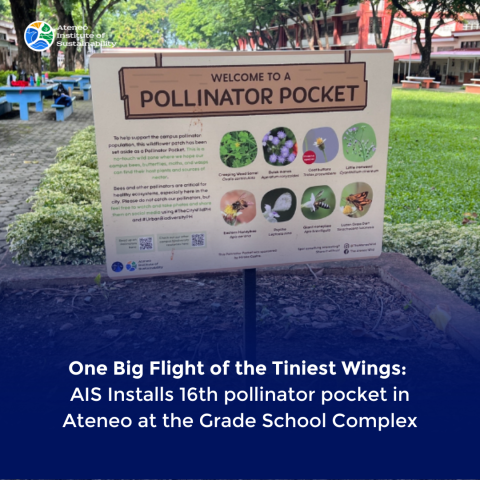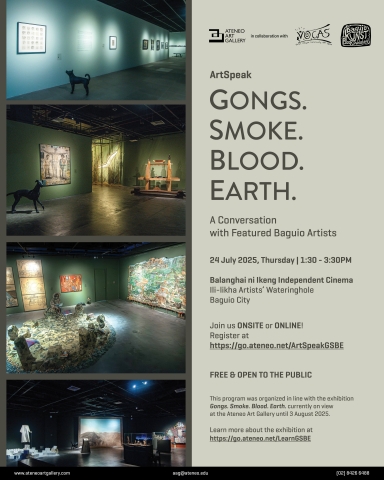AIS bridges climate change education through interactive workshop
15 Jul 2025 | Ivy Geraldine Ferrer
Last 08 July 2025, the Ateneo Institute of Sustainability (AIS) hosted a three-hour workshop modeled after Climate Fresk, a global, science-based collaborative mapping project designed to raise awareness about climate change and empower people to take action. The workshop, co-organized by the Organizational Sustainability (OS) and Climate and Disaster Resilience (CDR) Programs, invited the Intersession Interns and Research Assistants of AIS to better understand and comprehend the interconnectedness of various flows and mechanisms pertinent to climate change.
Guided by the findings of the Intergovernmental Panel on Climate Change (IPCC) reports, Climate Fresk is intended to help participants take ownership of the subject matter, and does not include an expert presenting the material to the group. Rather, it invites participants to play an active role in the development of the Fresk to transform them into participatory learners.
The workshop was facilitated by Angel Mata-Jamilan and Ivy Geraldine Ferrer, Program Officers of OS and CDR, respectively. During the session, participants were divided into two groups of four and used a total of 42 visual cards to identify its loops and linkages. These cards included science-related terms such as “Additional Greenhouse Effect” and “Energy Budget”, societal concepts such as “Human Health” and “Population Displacement”, and climate change drivers, such as “Deforestation” and “Agriculture” among others.
The first half of the workshop was spent building the Fresk, which involved the groups being handed five sets of cards in a phased manner and arranging them according to their own knowledge of the causes, consequences, and connectivity of these concepts. After each set, participants were invited to share their thoughts and opinions on the placement of their Fresk, citing that climate change is not restricted to a linear chain of events, rather, each has its own significant relationship that helps see the bigger picture and dive deeper into its root causes. This was followed by the creative phase of the session, in which they were tasked to design a title for the entire Fresk.
The second portion consisted of a short discussion on the recent global climate data and real-world climate change impacts in the local context. Following this, the participants were engaged in a segment of processing of the cards’ connectivity to the climate situation using a Blob Tree. In this portion, participants chose a character that best represents how they feel about the current climate landscape.
To conclude, a brainstorming session on the next steps towards climate action was done. Some of the participants shared their own individual ways of climate action, such as consistent use of public transportation, shifting to low-carbon food options, and advocating for just transition. It not only builds awareness but often sparks real behavioral change and action, both individually and collectively.






